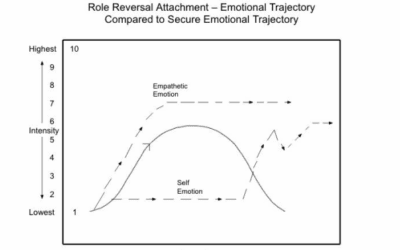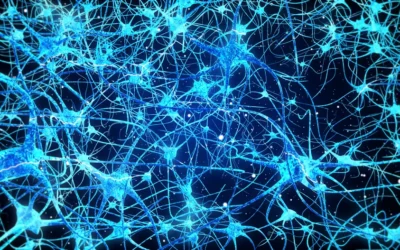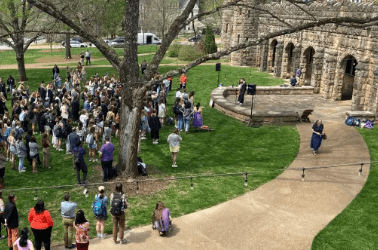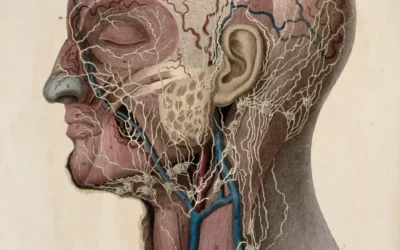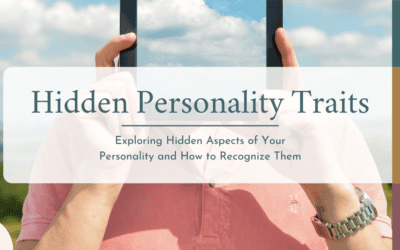Preparing for Alabama's New Mental Health Consent Laws: What Therapists Need to Know Alabama's mental health landscape is about to undergo a significant change. Senate Bill 101, which recently passed the Alabama House, will raise the age of medical and mental health consent from 14 to 18 years old. This shift represents one of the most substantial changes to minor consent laws in our state's recent history, and every mental health professional needs to be prepared. The bill is scheduled to take effect on...
Mental Health in Alabama: Addressing Unique Challenges and Building Statewide Resilience
Comprehensive Mental Health Resources for the Heart of Dixie
Welcome to Taproot Therapy Collective’s dedicated focus on mental health challenges, resources, and innovations specific to Alabama residents. As Birmingham’s leading integrative therapy practice, we understand that mental health care in Alabama requires deep appreciation for regional culture, rural access challenges, historical trauma, and the unique strengths and struggles that define life in the Heart of Dixie.
Understanding Alabama’s Mental Health Landscape
Our Mental Health in Alabama blog category examines the distinctive factors that influence psychological wellbeing across our state, from the rural communities of the Black Belt to the urban centers of Birmingham, Mobile, and Huntsville. Alabama faces unique mental health challenges including limited rural access to care, higher rates of trauma and adverse childhood experiences, economic stressors, and cultural factors that both support and complicate mental health treatment.
This approach builds on the comprehensive therapeutic services detailed on our main services page, where we provide specialized trauma treatment, EMDR, Brainspotting, and somatic therapies that address the complex mental health needs of Alabama residents while honoring Southern cultural values and community traditions.
Alabama-Specific Mental Health Challenges and Statistics
Alabama consistently ranks among the states with highest rates of adverse childhood experiences (ACEs), with nearly 70% of adults reporting at least one traumatic childhood experience. These statistics reflect generational patterns of trauma, poverty, and limited access to mental health resources that require comprehensive, culturally informed therapeutic approaches.
Rural mental health access represents a critical challenge, with over 60% of Alabama counties designated as mental health professional shortage areas. Many Alabama residents travel hours for specialized mental health care or go without treatment entirely, contributing to higher rates of suicide, substance abuse, and untreated depression and anxiety disorders.
Economic factors significantly impact mental health across Alabama, with poverty rates, unemployment, and underemployment creating chronic stress that exacerbates mental health conditions. Understanding how economic insecurity affects psychological wellbeing helps inform treatment approaches that address both individual symptoms and systemic stressors affecting entire communities.
Research from University of Alabama at Birmingham School of Medicine demonstrates how social determinants of health including housing instability, food insecurity, and limited healthcare access contribute to mental health disparities across Alabama, requiring integrated approaches that address both psychological symptoms and social support needs.
Cultural Considerations for Alabama Mental Health
Southern Culture and Mental Health Stigma creates both challenges and resources for mental health treatment in Alabama. Traditional Southern values of self-reliance, family loyalty, and religious faith can create barriers to seeking professional help while simultaneously providing strong community support networks and spiritual resources for coping with difficulties.
Understanding how concepts of masculinity, femininity, and family honor influence help-seeking behavior helps therapists provide more effective and culturally responsive treatment that honors Southern cultural values while addressing mental health needs. Our approach recognizes that effective therapy in Alabama requires cultural competency and appreciation for regional identity and values.
Religious and Spiritual Resources play central roles in Alabama communities, with high rates of church attendance and religious identification providing both mental health resources and potential sources of support or conflict. Understanding how different religious traditions approach mental health, family relationships, and personal struggles enhances therapeutic effectiveness while respecting spiritual commitments and community connections.
Historical Trauma and Collective Healing addresses how Alabama’s complex history including slavery, segregation, civil rights struggles, and ongoing racial tensions affects mental health across communities. Birmingham’s pivotal role in civil rights history creates unique opportunities for exploring collective trauma, resilience, and healing while addressing how historical events continue influencing contemporary mental health experiences.
Regional Mental Health Resources and Access
Birmingham as Mental Health Hub serves as Alabama’s primary center for specialized mental health services, with major medical centers, research institutions, and training programs providing advanced care options. Our comprehensive approach detailed in our about section emphasizes collaboration with regional healthcare systems to ensure clients receive coordinated, high-quality care.
Teletherapy Expanding Rural Access represents a crucial innovation for addressing Alabama’s geographic barriers to mental health care. Our specialized teletherapy services extend evidence-based treatment to underserved areas throughout Alabama, including dedicated programs for Auburn residents, Florence area communities, and Mobile region populations.
These teletherapy programs specifically address the unique mental health needs of different Alabama regions, from university communities facing academic stress to coastal areas dealing with weather-related trauma to rural communities struggling with economic challenges and social isolation.
Community Mental Health Centers across Alabama provide essential services for residents with severe mental illness, substance abuse disorders, and complex trauma histories. Understanding how community mental health systems work and building collaborative relationships with local providers enhances treatment coordination and ensures clients receive comprehensive care that addresses both immediate crisis needs and long-term recovery goals.
Alabama-Specific Mental Health Conditions and Treatment Approaches
Trauma and PTSD Treatment addresses high rates of trauma exposure in Alabama including military trauma (given significant veteran populations), domestic violence, child abuse, natural disasters, and community violence. Our specialized trauma treatment approaches including EMDR, Brainspotting, and Lifespan Integration provide effective interventions for complex trauma while honoring Southern cultural approaches to resilience and recovery.
Substance Abuse and Co-Occurring Disorders reflect Alabama’s ongoing struggles with opioid addiction, alcohol abuse, and prescription drug misuse that often accompany untreated mental health conditions. Understanding how substance abuse intersects with mental health requires integrated treatment approaches that address both psychological symptoms and addiction recovery while building on community support networks and spiritual resources.
Depression and Suicide Prevention addresses Alabama’s concerning suicide rates, particularly among rural populations, elderly residents, and young adults. Effective suicide prevention requires understanding cultural factors that both protect against and contribute to suicidal ideation while building community-based prevention and intervention strategies.
Anxiety and Stress-Related Disorders examines how economic uncertainty, social change, and cultural pressures contribute to anxiety disorders across Alabama populations. Treatment approaches must address both individual symptoms and environmental stressors while building on Southern cultural strengths including family support, community connection, and spiritual coping strategies.
Research and Innovation in Alabama Mental Health
Contemporary mental health research from Auburn University, University of Alabama, and University of South Alabama explores innovative approaches to rural mental health delivery, culturally responsive treatment methods, and technology-enhanced care that addresses Alabama’s unique challenges and population needs.
Collaborative research initiatives examine how telemedicine, mobile crisis services, and community-based interventions can improve mental health outcomes across Alabama while reducing costs and increasing accessibility. These studies inform policy development and program implementation that addresses systemic barriers to mental health care.
Partnership research with Alabama Department of Mental Health focuses on developing evidence-based programs that address Alabama’s specific mental health priorities including suicide prevention, trauma-informed care, and integrated treatment for co-occurring disorders while building on existing community strengths and resources.
Birmingham’s Role in Statewide Mental Health Leadership
As Alabama’s largest city and medical center, Birmingham plays crucial leadership roles in statewide mental health initiatives including provider training, research coordination, and policy development. Our participation in these broader efforts connects individual therapeutic work with systemic change efforts that improve mental health resources and access across Alabama.
Birmingham’s diverse population provides opportunities for developing and testing culturally responsive treatment approaches that can be adapted for implementation in other Alabama communities. Understanding how urban mental health innovations translate to rural settings helps ensure that evidence-based treatments reach all Alabama residents regardless of geographic location.
The city’s role as transportation and technology hub enables innovative service delivery models including teletherapy, mobile crisis services, and consultation programs that extend specialized expertise to underserved areas throughout Alabama.
Policy and Advocacy for Alabama Mental Health
Understanding Alabama’s mental health policy landscape helps therapists and clients navigate insurance systems, access state resources, and advocate for improved services and support. Current policy priorities include Medicaid expansion, rural access improvement, and integration of mental health services with primary healthcare delivery.
Advocacy efforts focus on reducing stigma, improving insurance coverage for mental health services, and developing comprehensive approaches to addressing social determinants of health that significantly impact psychological wellbeing across Alabama communities.
Professional advocacy includes supporting mental health provider training, supervision, and continuing education programs that ensure Alabama residents have access to high-quality, culturally competent mental health services regardless of geographic location or economic circumstances.
Connect with Our Alabama Mental Health Community
For deeper exploration of mental health challenges and resources specific to Alabama, check out more on the Discover + Heal + Grow Taproot Therapy Collective blog and podcast where we regularly feature Alabama mental health professionals, researchers, and advocates working to improve services and outcomes across our state.
Subscribe to our YouTube channel for discussions on Alabama mental health challenges and innovations, listen to our podcast for interviews with Alabama mental health leaders and researchers, follow us on Instagram for Alabama mental health resources and awareness information, connect on LinkedIn for professional Alabama mental health networking and resources, find us on Google Maps for comprehensive mental health services serving Alabama residents, and join our Reddit community for discussions on Alabama mental health challenges, resources, and advocacy efforts.
Featured Article Categories
Our Mental Health in Alabama blog includes Rural Access and Teletherapy addressing geographic barriers to mental health care, Cultural Competency exploring Southern culture and mental health intersections, Trauma and Resilience examining Alabama-specific trauma patterns and recovery resources, Policy and Advocacy covering Alabama mental health legislation and systems change, Research and Innovation highlighting Alabama-based mental health studies and programs, Community Resources providing comprehensive guides to Alabama mental health services, Suicide Prevention addressing Alabama’s suicide rates and prevention strategies, and Substance Abuse Integration examining co-occurring disorders and treatment approaches specific to Alabama populations.
Specialized Alabama-Focused Programs
We offer monthly Alabama Mental Health Advocacy Groups for individuals interested in policy and systems change, quarterly Rural Mental Health Outreach Programs providing consultation and training for underserved areas, specialized Cultural Competency Training for mental health professionals serving Alabama populations, and Alabama Trauma Recovery Intensives addressing state-specific trauma patterns and community healing approaches.
Start Your Alabama Mental Health Journey Today
Understanding and addressing mental health challenges specific to Alabama requires cultural competency, regional expertise, and commitment to improving access and outcomes for all residents. Our Birmingham-based team at Taproot Therapy Collective combines deep knowledge of Alabama culture and mental health landscape with evidence-based treatments detailed in our psychology and research section to provide comprehensive care that honors both individual needs and community context.
Contact Taproot Therapy Collective: 📍 2025 Shady Crest Dr. Suite 203, Hoover, AL 35216
📞 (205) 598-6471
🌐 www.GetTherapyBirmingham.com
🎧 Podcast: gettherapybirmingham.podbean.com
We provide comprehensive mental health services that address Alabama-specific challenges while honoring Southern cultural values and community strengths for effective, culturally responsive therapeutic care.
Discover + Heal + Grow with Taproot Therapy Collective – Birmingham’s comprehensive resource for Alabama mental health understanding, advocacy, and culturally responsive therapeutic care.
Attachment, Emotional Arcs, and Somatic Approaches: From Mary Main’s Revolutionary Research to Contemporary Therapeutic Integration
Brainspotting in Alabama: Revolutionary Trauma Therapy for Deep Healing, Evidence Based Practice and Research Psychology, Mental Health and Psychotherapy Resources in Alabama, Mental Health and Trauma Therapy in Alabama, Therapy Resources for Alabama
Mary Main's Groundbreaking Attachment Research Mary Main (1943-2023) transformed our understanding of attachment through her revolutionary contributions to developmental psychology and attachment research. As a protégé of Mary Ainsworth at Johns Hopkins University, Main expanded attachment theory beyond its original three categories by discovering a fourth pattern known as disorganized/disoriented attachment and developing the Adult Attachment Interview (AAI) to assess attachment representations across...
Coping with the Loss of a Beloved Pet
Brainspotting in Alabama: Revolutionary Trauma Therapy for Deep Healing, Mental Health and Psychotherapy Resources in Alabama, Mental Health and Trauma Therapy in Alabama, Therapy Resources for Alabama
Grief, Healing, and Brainspotting for the Loss of a Pet The bond between humans and their animal companions is a powerful one. Pets provide us with unconditional love, emotional support, and constant companionship. They are a source of joy, laughter, and comfort. So when a beloved pet dies, it's no surprise that their loss can be devastating. Grief over the loss of a pet is often minimized or misunderstood by others. Some may not understand the depth of the bond you shared with your animal friend. "It's just a...
The Enduring Relevance of Alice Miller’s Drama of the Gifted Child
Mental Health and Psychotherapy Resources in Alabama, Psychotherapy Biographies: Historical Figures in the History of Psychology
Why Therapists Must Consciously Embrace Their Wounded Healer Role Four decades after its publication, Alice Miller's "The Drama of the Gifted Child" remains one of the most important texts for understanding both the psychology of the helping professions and the hidden dynamics that can sabotage therapeutic relationships. Miller's insights into how sensitive children become caretakers—and how these caretakers often become therapists—offer crucial wisdom for contemporary mental health professionals navigating an...
The Urgent Need for Medicaid Expansion and Healthcare Reform in Alabama:
Executive and Physician Burnout, Mental Health and Psychotherapy Resources in Alabama, Mental Health and Trauma Therapy in Alabama
An Interview with Dr. Madeline Eckenrode The U.S. healthcare system is broken in many ways, leaving millions of Americans un- or under-insured and unable to access the care they need. This is especially true in states like Alabama that have not expanded Medicaid under the Affordable Care Act. In an eye-opening interview on the Taproot Therapy Collective podcast, hosts Joel Blackstock and Haley Beech speak with Dr. Madeline Eckenrode, a primary care physician at the University of Alabama at Birmingham (UAB),...
Integrating qEEG BrainMapping into Your Clinical Practice
Alternative Medicine and Holistic Health, Mental Health and Psychotherapy Resources in Alabama, Mental Health and Trauma Therapy in Alabama, Neuroscience and the Brain for Therapists, Therapy Resources for Alabama
Unlocking the Power of qEEG Brain Mapping and Neurostimulation: A Game-Changer for Mental Health Treatment Mental health conditions such as ADHD, autism spectrum disorder (ASD), PTSD, anxiety, and depression can significantly impact an individual's quality of life, relationships, and overall well-being. While traditional treatment approaches like therapy and medication can be effective, cutting-edge technologies such as qEEG brain mapping and neurostimulation are revolutionizing the field of mental health...
Comprehensive Support Systems for College Students: Addressing Mental Health and Wellness on Campus
Executive and Physician Burnout, Mental Health and Psychotherapy Resources in Alabama, Mental Health and Trauma Therapy in Alabama, Therapy and Crisis Intervention for College Students in Alabama, Understanding Neurodivergence and Neurodiversity in Therapy
College represents a critical developmental period marked by significant transitions, academic pressures, and identity formation. Creating effective support systems requires understanding both neurobiological factors and social dimensions that affect student wellbeing. This article explores evidence-based approaches to supporting college students through various challenges, with a particular focus on trauma-informed care and holistic wellness strategies. Understanding the Modern College Student Experience Today's...
Supporting Neurodivergent College Students: A Comprehensive Approach to Mental Health and Academic Success
Executive and Physician Burnout, Mental Health and Psychotherapy Resources in Alabama, Mental Health and Trauma Therapy in Alabama, Therapy and Crisis Intervention for College Students in Alabama, Understanding Neurodivergence and Neurodiversity in Therapy
College represents a pivotal transition in young adults' lives—a period of newfound independence coupled with challenging academic and social demands. For neurodivergent students, including those with autism spectrum disorder, ADHD, and dyslexia, this transition presents unique challenges that require specialized support. Understanding and addressing these challenges is essential for creating inclusive campus environments where all students can thrive. Understanding Neurodiversity as a Natural Variation Modern...
The Comprehensive Approach to Supporting College Students: Integrating Mind, Body, and Brain
Mental Health and Psychotherapy Resources in Alabama, Mental Health and Trauma Therapy in Alabama, Self Help and Personal Development, Somatic Experiencing In Alabama, Therapy and Crisis Intervention for College Students in Alabama, Understanding Neurodivergence and Neurodiversity in Therapy
Understanding Today's College Student Challenges Today's college students face unprecedented challenges that extend beyond academic demands. From navigating complex social environments to managing their mental health, students need multifaceted support systems that address their holistic wellbeing. The gut-brain connection plays a crucial role in cognitive functioning and mental health, offering innovative pathways for supporting student success beyond traditional interventions. The Neurobiological Foundation of...
Comprehensive Support for Alabama College Students: Advanced Therapeutic Approaches
Mental Health and Psychotherapy Resources in Alabama, Mental Health and Trauma Therapy in Alabama, Therapy and Crisis Intervention for College Students in Alabama
The Modern College Mental Health Landscape Today's college students face unprecedented challenges balancing academic demands, social pressures, and preparation for future careers. For students at Alabama institutions like Auburn University and University of Alabama, these challenges can be particularly significant as they navigate the transition to independence while managing rigorous academic programs. The mental health statistics among college students are concerning, with anxiety and depression rates...
Help! My College Student Needs Therapy
Lifespan integration in Alabama, Mental Health and Psychotherapy Resources in Alabama, Mental Health and Trauma Therapy in Alabama, Recovering from Abuse, Therapy and Crisis Intervention for College Students in Alabama, Therapy Resources for Alabama
Discover innovative mental health solutions for college students at Taproot Therapy Collective. Our comprehensive approach integrates cutting-edge treatments like QEEG brain mapping, neurofeedback, and somatic therapies with specialized support for ADHD, anxiety, trauma, and neurodiversity. With both in-person and teletherapy options available across Alabama, we provide accessible, evidence-based care tailored to the unique challenges of university life. From academic performance to emotional wellbeing, our expert therapists help students thrive during this critical developmental period.RetryClaude can make mistakes. Please double-check responses.
Unlocking the Potential of qEEG Brain Mapping and Neuromodulation for Autism Spectrum Disorder
Alternative Medicine and Holistic Health, Executive and Physician Burnout, Mental Health and Psychotherapy Resources in Alabama
At Taproot Therapy Collective, we are at the forefront of innovative treatments for autism spectrum disorder (ASD). Our approach combines the cutting-edge technologies of qEEG brain mapping and neuromodulation to provide personalized, targeted interventions that address the unique challenges faced by individuals with ASD. By harnessing the power of these advanced techniques, we aim to promote positive changes in brain function, behavior, and overall quality of life. Understanding Autism Spectrum Disorder Autism...
Lifespan Integration Therapy for Teens and Adolescents: A Gentle, Effective Approach to Healing Past Wounds
Lifespan integration in Alabama, Recovering from Abuse, Therapy Resources for Alabama, Understanding Neurodivergence and Neurodiversity in Therapy
Can you use Lifespan Integration on Teens or Kids? The teenage years are a time of intense growth, change, and self-discovery. While this developmental period can be exciting and expansive, it can also surface unresolved traumas, attachment wounds, and painful memories from earlier in life. For many teens, these past experiences can fuel current struggles like anxiety, depression, relationship conflicts, and self-harming behaviors. If you're a parent or caregiver seeking support for a struggling teen, you may...
How to Heal After Leaving a Toxic Relationship and Reclaim Your True Self
Mental Health and Psychotherapy Resources in Alabama, Parenting Psychology and Therapy for Parents, Psychology, Recovering from Abuse, Self Help and Personal Development, Uncategorized
How Therapy Can Heal Toxic Relationships Leaving a toxic relationship is one of the bravest and most difficult steps a person can take. Whether it was a romantic partner, a family member, or a close friend, extricating yourself from a relationship pattern that was destructive to your well-being is a profound act of self-love and self-preservation. However, the journey of healing doesn't end the moment you walk away. In many ways, that's just the beginning. The aftermath of a toxic relationship can leave you...
The Window of Tolerance: The Healing Gateway in Somatic Therapy
Alternative Medicine and Holistic Health, Mental Health and Psychotherapy Resources in Alabama, Somatic Experiencing In Alabama
What is the Window of Tolerance in Psychology? In the realm of psychology and personal growth, the concept of the "window of tolerance" has emerged as a powerful framework for understanding the dynamics of stress, emotional regulation, and resilience. First coined by psychiatrist Dr. Dan Siegel, the term refers to the optimal zone of arousal where a person is able to function most effectively - neither too overwhelmed nor too disengaged. Interestingly, while the specific language of the "window of tolerance" is a...
Cults, Propaganda and Lies: Exploring Inner and Outer Manipulation
Mental Health and Psychotherapy Resources in Alabama, Philosophy for Therapists, Psychology, Recovering from Abuse
Why do People Join Cults and Believe Propaganda? The Internet and the Illusion of Truth When the internet first emerged, many believed it would solve our political problems by providing universal access to truth. I remember these days myself and there was a techno-libertarian-utopianism that pervaded the early internet. The idea was that, with the ability to bypass traditional gatekeepers like the government and the news media, people would be able to find and spread accurate information, leading to a more...
All Brains Are Awesome:
Lifespan integration in Alabama, Mental Health and Psychotherapy Resources in Alabama, Recovering from Abuse, Understanding Neurodivergence and Neurodiversity in Therapy
A Kid's Guide to Neurodiversity Hey there! Did you know that everyone's brain works a little differently? It's true! Just like how some people have curly hair and others have straight hair, or some people are tall and others are short, our brains can be different too. This is called neurodiversity, and it's what makes each of us special and unique. What Does Neurodiversity Mean? Imagine your brain is like a super cool computer. Every computer can do amazing things, but some are better at certain tasks than...
Mental Health and Psychotherapy Resources in Alabama, Understanding Neurodivergence and Neurodiversity in Therapy
Embracing Unique Minds in a Diverse World Understanding Neurodiversity in Children Neurodiversity refers to the natural variation in human brains and minds. In children, this can manifest as conditions like autism, ADHD, dyslexia, and others. Many children have multiple co-occurring neurodevelopmental differences, creating a unique cognitive profile for each child. Recognizing Neurodivergence in Children Signs of neurodivergence can vary widely but may include: Differences in social interaction and communication...
Navigating Neurodivergent Burnout:
Executive and Physician Burnout, Lifespan integration in Alabama, Mental Health and Psychotherapy Resources in Alabama, Recovering from Abuse, Understanding Neurodivergence and Neurodiversity in Therapy
When the Cognitive Tank Runs Dry Understanding Neurodivergent Burnout Neurodivergent burnout is a state of physical and mental exhaustion that occurs when the demands of navigating a neurotypical world exceed an individual's resources. While burnout can affect anyone, it often manifests differently and more intensely in neurodivergent individuals, particularly those with multiple co-occurring conditions. The Complexity of Burnout Across Conditions Burnout can present uniquely depending on an individual's...
Unmasking Neurodiversity:
Lifespan integration in Alabama, Mental Health and Psychotherapy Resources in Alabama, Understanding Neurodivergence and Neurodiversity in Therapy
The Complex Art of Hiding in Plain Sight Understanding Masking in Neurodivergent Individuals Masking, also known as camouflaging, is a common phenomenon among neurodivergent individuals, particularly those with multiple co-occurring conditions. It refers to the conscious or unconscious suppression of natural behaviors and the adoption of neurotypical social norms to fit in. While masking can be a survival strategy in a world not designed for neurodivergent minds, it often comes at a significant personal cost. The...
Embracing Neurodiversity:
Lifespan integration in Alabama, Mental Health and Psychotherapy Resources in Alabama, Understanding Neurodivergence and Neurodiversity in Therapy
Understanding and Supporting Complex Neurological Profiles The Reality of Neurodevelopmental Complexity As we've explored in our series on comorbid conditions, neurodevelopmental and neurological differences rarely occur in isolation. Whether we're discussing the intersection of ADHD and bipolar disorder, autism and OCD, or the complex interplay between physical conditions like Ehlers-Danlos Syndrome and neurodevelopmental differences, one thing becomes clear: human neurology is intricate and diverse. Common...
Ehlers-Danlos Syndrome with Autism and ADHD:
Lifespan integration in Alabama, Mental Health and Psychotherapy Resources in Alabama, Understanding Neurodivergence and Neurodiversity in Therapy
Navigating the Intersection of Physical and Neurodevelopmental Differences What is EDS with Autism and ADHD? Ehlers-Danlos Syndrome (EDS) is a group of connective tissue disorders that can co-occur with neurodevelopmental conditions like Autism Spectrum Disorder (ASD) and Attention Deficit Hyperactivity Disorder (ADHD). Recent research suggests a higher prevalence of autism and ADHD in individuals with EDS compared to the general population. When someone has EDS along with autism and/or ADHD, we refer to this...
Autism and Alexithymia:
Lifespan integration in Alabama, Mental Health and Psychotherapy Resources in Alabama, Understanding Neurodivergence and Neurodiversity in Therapy
Navigating the Complexities of Emotional Understanding What is Autism with Alexithymia? Autism Spectrum Disorder (ASD) and alexithymia are distinct neurological conditions that frequently co-occur. Research suggests that up to 50% of autistic individuals may also experience alexithymia, a condition characterized by difficulty identifying and describing one's own emotions. When someone has both autism and alexithymia, we refer to this unique neurological profile as Autism-Alexithymia. The Diagnostic Evolution of...
Dyslexia and ADHD:
Mental Health and Psychotherapy Resources in Alabama, Understanding Neurodivergence and Neurodiversity in Therapy
Unraveling the Complexities of Learning and Attention What is Dyslexia with ADHD? Dyslexia and Attention Deficit Hyperactivity Disorder (ADHD) are distinct neurodevelopmental conditions that frequently co-occur. Research suggests that up to 40% of individuals with dyslexia also meet criteria for ADHD. When someone has both dyslexia and ADHD, we refer to this unique neurological profile as Dyslexia-ADHD. The Diagnostic Evolution of Dyslexia-ADHD Historically, the reading difficulties associated with dyslexia were...
Depression and Autism:
Mental Health and Psychotherapy Resources in Alabama, Trauma Treatment in Alabama, Understanding Neurodivergence and Neurodiversity in Therapy
Navigating the Intersection of Mood and Neurodiversity What is Depression with Autism? Depression and Autism Spectrum Disorder (ASD) are distinct conditions that can co-occur. Research suggests that individuals with autism are at a higher risk of developing depression, with some studies indicating rates as high as 40%. When someone has both depression and autism, we refer to this unique neurological profile as Depression-Autism. The Diagnostic Evolution of Depression-Autism Historically, depression in autistic...
Anxiety Disorders and ADHD:
Mental Health and Psychotherapy Resources in Alabama, Trauma Treatment in Alabama, Understanding Neurodivergence and Neurodiversity in Therapy
Unraveling the Tangle of Worry and Inattention What is Anxiety with ADHD? Anxiety Disorders and Attention Deficit Hyperactivity Disorder (ADHD) are distinct conditions that frequently co-occur. Research suggests that up to 50% of individuals with ADHD also experience an anxiety disorder. When someone has both an anxiety disorder and ADHD, we refer to this unique neurological profile as Anxiety-ADHD. The Diagnostic Evolution of Anxiety-ADHD Historically, the restlessness and difficulty concentrating seen in...
Bipolar Disorder and ADHD:
Mental Health and Psychotherapy Resources in Alabama, Trauma, Depth Psychology, and Social Work, Understanding Neurodivergence and Neurodiversity in Therapy
Navigating the Complexity of Dual Diagnosis What is Bipolar Disorder with ADHD? Bipolar Disorder and Attention Deficit Hyperactivity Disorder (ADHD) are two distinct neurodevelopmental conditions that can co-occur in some individuals. Recent research suggests that up to 20% of individuals with bipolar disorder also meet criteria for ADHD, and vice versa. When someone has both bipolar disorder and ADHD, it creates a unique neurological profile that we'll refer to as bipolar-ADHD. The Diagnostic Evolution of...
Borderline Personality Disorder and Bipolar Disorder:
Mental Health and Psychotherapy Resources in Alabama, Recovering from Abuse, Trauma Treatment in Alabama, Trauma, Depth Psychology, and Social Work, Understanding Neurodivergence and Neurodiversity in Therapy
Navigating Emotional Intensity What is BPD with Bipolar Disorder? Borderline Personality Disorder (BPD) and Bipolar Disorder are distinct conditions that can co-occur in some individuals. Studies suggest that up to 20% of individuals with BPD also meet criteria for Bipolar Disorder. When someone has both BPD and Bipolar Disorder, it creates a unique psychological profile that we'll refer to as BPD-Bipolar. The Diagnostic Evolution of BPD-Bipolar Historically, the intense mood swings seen in BPD were often...
PTSD and ADHD:
Mental Health and Psychotherapy Resources in Alabama, Recovering from Abuse, Understanding Neurodivergence and Neurodiversity in Therapy
Understanding the Overlap in Hypervigilance and Attention What is PTSD with ADHD? Post-Traumatic Stress Disorder (PTSD) and Attention Deficit Hyperactivity Disorder (ADHD) are distinct conditions that can co-occur in some individuals. Recent research suggests that up to 25% of individuals with PTSD also meet criteria for ADHD. When someone has both PTSD and ADHD, it creates a unique neurological profile that we'll refer to as PTSD-ADHD. The Diagnostic Evolution of PTSD-ADHD Historically, the hypervigilance and...
Autism and OCD:
Alternative Medicine and Holistic Health, Mental Health and Psychotherapy Resources in Alabama, Understanding Neurodivergence and Neurodiversity in Therapy
Unraveling the Complexity of Overlapping Behaviors What is Autism with OCD? Autism Spectrum Disorder (ASD) and Obsessive-Compulsive Disorder (OCD) are distinct neurodevelopmental conditions that can co-occur in some individuals. Recent research suggests that up to 17% of autistic individuals also meet criteria for OCD. When someone has both autism and OCD, it creates a unique neurological profile that we'll refer to as autism-OCD. The Diagnostic Evolution of Autism-OCD Historically, the repetitive behaviors seen...
Rewiring the Anxious Brain:
Mental Health and Psychotherapy Resources in Alabama
The Role of Neuromodulation in Treating Anxiety Disorders in Hoover, Birmingham Anxiety disorders affect countless individuals in Hoover and Birmingham, Alabama. While traditional treatments can be effective, innovative clinics like Taproot Therapy Collective are bringing neuromodulation techniques to the forefront of anxiety treatment in the area. What is Neuromodulation? Neuromodulation refers to a range of techniques that use electrical or magnetic stimulation to modulate brain activity. Clinics in Hoover and...
The Future of ADHD Treatment in Birmingham Alabama
Mental Health and Psychotherapy Resources in Alabama
How qEEG Brain Mapping and Neurostimulation are Changing the Game What is qEEG Brain Mapping Attention Deficit Hyperactivity Disorder (ADHD) affects countless children and adults in Hoover and Birmingham, Alabama. While traditional treatments have been the norm, innovative clinics like Taproot Therapy Collective are bringing cutting-edge technologies like qEEG brain mapping and neurostimulation to the forefront of ADHD treatment in the area. Understanding ADHD Through qEEG Brain Mapping qEEG brain mapping...
Unlocking the Potential of qEEG Brain Mapping and Neurostimulation for Mental Health in Hoover, Birmingham
Therapy Resources for Alabama, Therapy Resources, Tips and Tools
Quantitative Electroencephalography (qEEG) brain mapping and neurostimulation are transforming the mental health landscape in Hoover and Birmingham, Alabama. These cutting-edge techniques, offered by innovative clinics like Taproot Therapy Collective, provide new avenues for diagnosing and treating a range of mental health conditions. What is qEEG Brain Mapping? qEEG brain mapping is a neuroimaging technique that measures and records the electrical activity of the brain. By analyzing the resulting data, Hoover...
Psychotherapy’s Feuding Founders
Evidence Based Practice and Research Psychology, History of Psychotherapy, Mental Health and Psychotherapy Resources in Alabama, Neuroscience and the Brain for Therapists, Phenomenology and Existential Psychology
Ego, Ideology, and the Battle for the Soul of the Profession From the outside, psychotherapy often appears to be a staid and sober enterprise – a science of the mind dedicated to the rational amelioration of human suffering. But a closer examination of the field's history reveals a far more tumultuous and fractious reality. Beneath the calm veneer of clinical respectability lies a roiling cauldron of clashing personalities, competing paradigms, and bitter doctrinal disputes. Far from a detached, objective...
Understanding AuDHD: When Autism and ADHD Intersect
Free Resources for Therapists in Private Practice, Mental Health and Psychotherapy Resources in Alabama, Psychology
What is AuDHD? Attention Deficit Hyperactivity Disorder (ADHD) and Autism Spectrum Disorder (ASD) are two distinct neurodevelopmental conditions that frequently co-occur. Recent research suggests that 50-70% of autistic individuals also have ADHD, and two-thirds of those with ADHD may have co-existing conditions like autism. When someone has both autism and ADHD, it's often referred to as AuDHD. The Diagnostic Evolution of AuDHD Despite the high co-occurrence, it wasn't until relatively recently that AuDHD could...
The Neuroscience and Phenomenology of Brainspotting
Alternative Medicine and Holistic Health, Anthropology and Evolutionary Psychology for Therapy, Brainspotting in Alabama: Revolutionary Trauma Therapy for Deep Healing, Neuroscience and the Brain for Therapists, Therapy Resources for Alabama, Trauma Treatment in Alabama
An In-Depth Exploration of What Brainspotting Does in the Brain Brainspotting is a relatively new psychotherapy approach that combines elements of psychodynamic, somatic, and mindfulness-based therapies to facilitate deep emotional healing and trauma resolution [1]. Developed by David Grand in 2003, brainspotting operates on the premise that "where you look affects how you feel" [2]. By guiding the client's visual focus to specific external positions (brainspots), the therapist can help access and process...
The Somatic and Neurological Experience of Brainspotting Therapy
Alternative Medicine and Holistic Health, Mental Health and Psychotherapy Resources in Alabama, Somatic Experiencing In Alabama, Understanding Neurodivergence and Neurodiversity in Therapy
The Trauma Healing Power of Brainspotting Brainspotting is a powerful therapeutic approach that engages the body and brain in a unique way to facilitate healing from trauma and emotional distress. Developed by Dr. David Grand, brainspotting evolved out of his work with EMDR (Eye Movement Desensitization and Reprocessing) and taps into the deep connection between the brain's visual system, emotional processing centers, and physiological responses. While the process may vary for each individual, there are some...
Understanding Alexithymia
Mental Health and Psychotherapy Resources in Alabama, Recovering from Abuse, Understanding Neurodivergence and Neurodiversity in Therapy
What is Alexithymia? Alexithymia is a condition characterized by difficulties identifying and describing one's own emotions. People with alexithymia have trouble recognizing, processing and regulating their feelings. This can lead to challenges in relationships, self-awareness, and overall emotional and mental well-being. Alexithymia is not the same as being a sociopath or psychopath. Rather than an inability to feel empathy, people with alexithymia do experience emotions, sometimes very intensely. However, they...
The Gut-Brain Connection: How Micronutrition and Synergistic Nutrition Support Mental Health
Alternative Medicine and Holistic Health, Mental Health and Psychotherapy Resources in Alabama, Recovering from Abuse, Understanding Neurodivergence and Neurodiversity in Therapy
What supplements help mental health? Supplements for Mental Health: Vitamin A: Essential for brain development and function, may impact mood regulation. Vitamin C: Acts as an antioxidant, potentially reducing oxidative stress in the brain associated with anxiety and depression. Vitamin D: Linked to mood regulation and cognitive function, deficiency associated with increased risk of depression. Vitamin E: Antioxidant properties may protect brain cells from oxidative damage. Vitamin K: Emerging research suggests a...
The Psychology of Color: What effect does color have on brain function?
Alternative Medicine and Holistic Health, Mental Health and Psychotherapy Resources in Alabama
The Impact of Color on Somatics and Cognition: Insights from Emotional Transformation Therapy Color plays a profound role in shaping our emotional experiences and cognitive processes. The therapy modality Emotional Transformation Therapy (ETT), pioneered by Dr. Steven Vazquez, delves into the intricate relationship between color, somatics, and cognition. By harnessing the power of color, ETT aims to facilitate emotional healing, promote self-awareness, and enhance overall well-being. ETT recognizes that colors...
How do I talk to my kids about sex?
Mental Health and Psychotherapy Resources in Alabama
Talking with your kids about sex is one of the best things a parent can do. We know it’s protective. Kids who are knowledgeable and have a healthy, body positive sense of their own sexuality are less likely to become victims of sexual abuse in childhood. What should I tell my kids about sex? Children need to know the proper names for their genitals. Despite all the silly names that exists for them, children are safer when they are able to speak about them in regular terminology. Children also need to know what...
Get to Know the Hidden Parts of Your Personality!
Guided Meditations for Therapy, Mental Health and Psychotherapy Resources in Alabama
Embracing the Multitudes Within: Understanding Subpersonalities and Parts-Based Therapy The human psyche is a complex and multifaceted landscape, populated by a diverse cast of characters that shape our thoughts, feelings, and behaviors. These different aspects of our personality, often called "subpersonalities" or "parts," can work together harmoniously or clash in inner conflict, leading to a sense of internal discord and emotional distress. The concept of subpersonalities is not new; it has roots in various...



